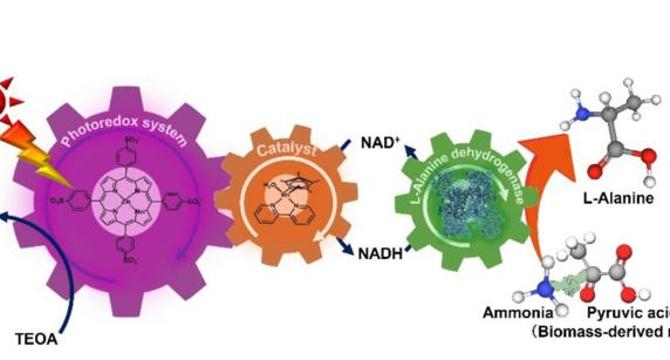Bioengineer
2d
164

Image Credit: Bioengineer
Revolutionary Biodegradable Nylon Precursor Created via Artificial Photosynthesis
- Osaka Metropolitan University scientists have made significant strides in the field of sustainable materials, particularly in the synthesis of biodegradable nylon precursors from biomass-derived compounds.
- Their aim was to explore new horizons by synthesizing nylon precursors from non-renewable fossil fuels through artificial photosynthesis technology.
- The breakthrough is especially relevant as the world grapples with the growing concern of plastic pollution and the environmental impact of traditional petroleum-based plastics.
- The innovative approach of Professor Amao’s team involves artificial photosynthesis technology, which has been revolutionized by incorporating L-alanine dehydrogenase as a biocatalyst.
- This approach could ultimately lead us on a path where modern conveniences and ecological responsibility harmoniously coexist, aligning well with the principles of sustainable development.
- With the successful synthesis of the nylon precursor poly-L-alanine using solar energy, Professor Amao expresses optimism for the future of environmentally friendly plastics.
- The potential applications of biodegradable nylon are vast, from textiles to packaging materials, suggesting a future where such innovations could significantly reduce the burden of plastic waste on the environment.
- As a result, this new research provides not only a technological advancement but also a crucial step towards achieving a circular economy in plastics.
- Moreover, the process of artificial photosynthesis opens doors beyond the production of biodegradable nylon.
- This study serves as a commendation of interdisciplinary research, merging elements of chemistry, biology, and environmental science.
Read Full Article
9 Likes
For uninterrupted reading, download the app